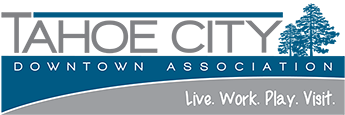With the seemingly never-ending series of storms dumping feet upon feet of snow in Tahoe, it’s time to remind homeowners to be vigilant with their properties to ensure the safety of residents and guests.
It was a busy weekend for North Tahoe Fire and Meeks Bay Fire crews, who responded to a structure fire in Meeks Bay that resulted from an overheated firebox. Multiple late-night calls resulted from Carbon Monoxide alarm activation. In some instances, crews found the structures’ generators, activated due to a regional power outage, were entombed in deep snow from roof shed, resulting in the generators charging the structures with considerable levels of Carbon Monoxide gas. Another late-night call sent crews to a condo unit charged with very high levels of Carbon Monoxide gas due to blocked and malfunctioning exhaust on the unit’s hydronic heating system. In all cases, if it were not for functioning Carbon Monoxide alarms, the colorless-odorless gas could have very easily gone undetected as the occupants slept, causing death or injury.
Sadly this weekend, crews responded to a small child crushed and trapped under a tree trunk sized ice sickle weighing over 150 pounds. Firefighter-paramedics had to use mechanical advantage techniques, shoring and cribbing to extricate the child. The child was transported to Tahoe Forest Hospital ER with leg injuries.
Today, Tahoe Lake Elementary School students were diverted to North Tahoe High School due to a gas leak resulting
from a pipe that snapped under the weight of ice and snow.
What can property owners and residents do? “Do not neglect your mountain home,” said NTFPD Fire Chief Michael
Schwartz. “Mountain homes require strict maintenance, especially during heavy winters.” Schwartz provided these tips for keeping mountain homes safe in the winter.
• Maintain your structure’s roof systems. Safely mitigate roof shed hazards, excessive snow build-up and
hazardous ice sickle formation, and keep people and pets clear of roof shed hazard areas.
• Clean and inspect chimney systems. Ensure they are clear of snow, ice and creosote build-up and that they have
not been damaged by snow shed.
• Inspect all gas burning appliances and generators to ensure proper combustion ventilation and exhaust systems,
and make sure there are functioning CO alarms in the home. Clear gas lines and meters of snow and ice.
• Inspect all appliance exhaust systems to ensure they have not become blocked or damaged by snow, ice, roof
snow shed, forest litter debris, or nesting rodents.
The NFPA provides helpful tipsheets for vacation homeowners and for full-time residents on best practices to keep your home safe during winter storms.
